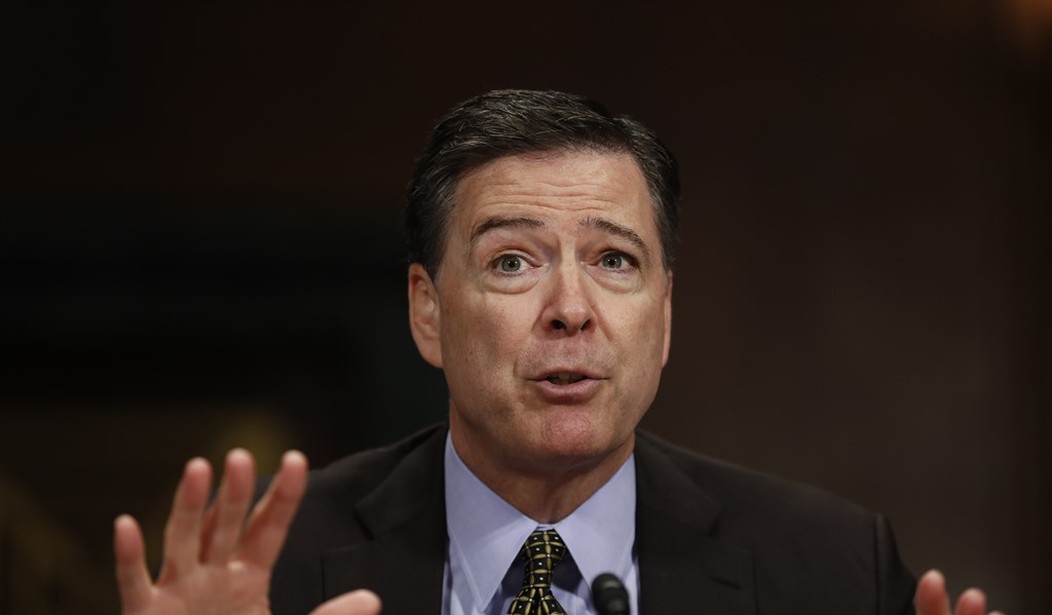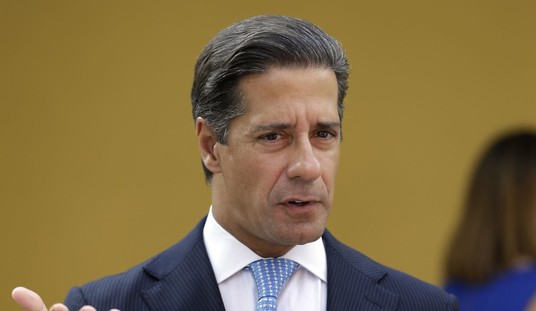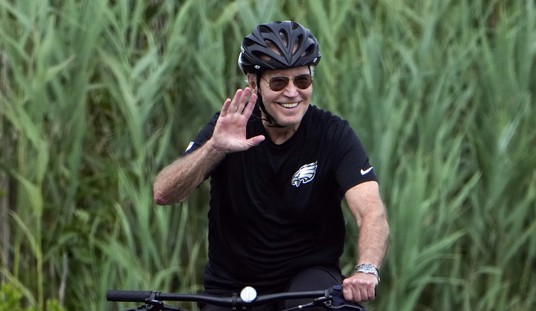Marc Kasowitz, Trump’s private attorney, is out of the gate quick today:
Trump’s lawyer to hit Comey for leaks: "We will leave it the appropriate authorities to determine whether this leaks should be investigated" pic.twitter.com/jSFkLIvwXd
— Oliver Darcy (@oliverdarcy) June 8, 2017
Is Comey in legal jeopardy? I’m going to guess “probably not” since he’s a former federal prosecutor, no doubt has dozens of friends who are federal prosecutors, and seems like the sort of guy who’d do basic due diligence on the lawfulness of his actions before leaking an account of private conversations he had with the president.
Don’t be so sure, says Jonathan Turley. If you thought the media hype today was nuts, imagine the circus surrounding a prospective Jeff-Sessions-led prosecution of Comey for leaking:
The problem is that Comey’s description of his use of an FBI computer to create memoranda to file suggests that these are arguably government documents. Comey admitted that he thought he raised the issue with his staff and recognized that they might be needed by the Department or Congress. They read like a type of field 302 form, which are core investigatory documents…
Besides being subject to Nondisclosure Agreements, Comey falls under federal laws governing the disclosure of classified and nonclassified information. Assuming that the memos were not classified (though it seems odd that it would not be classified even on the confidential level), there is 18 U.S.C. § 641 which makes it a crime to steal, sell, or convey “any record, voucher, money, or thing of value of the United States or of any department or agency thereof.”
The legal ins and outs here are way above my pay grade, but I don’t understand why Trump’s exchange with Comey about Flynn would necessarily be “confidential” for classification purposes. “Confidential” classified info is supposed to relate to U.S. national security; Trump nudging Comey to go easy on Flynn doesn’t touch on that unless you believe that anything the two might have said about a former National Security Advisor necessarily implicates natsec. Trump didn’t assert any executive privilege to block Comey’s testimony today either, probably because a court would most likely find that he’d already waived it by shooting his mouth off on Twitter and in interviews, so the confidentiality argument seems thin to me. It can’t be that everything the president says to his FBI director is beyond the bounds of public disclosure. If that were true, any president could attempt to influence an investigation, obstruct justice, or what have you and the FBI would be powerless to expose him.
The argument about Comey violating the federal records law seems stronger:
Whoever embezzles, steals, purloins, or knowingly converts to his use or the use of another, or without authority, sells, conveys or disposes of any record, voucher, money, or thing of value of the United States or of any department or agency thereof, or any property made or being made under contract for the United States or any department or agency thereof; or
Whoever receives, conceals, or retains the same with intent to convert it to his use or gain, knowing it to have been embezzled, stolen, purloined or converted
Turley’s question is simple: Whose memo was it? Was it Comey’s personal memorandum or was it something he drafted for the FBI’s own files, as seems to be the case? If it’s an FBI memo, it’s government property — so how did it end up in the hands of Comey pal Daniel Richman, the alleged source for the NYT story that first revealed the existence of the memo? The Times reported on May 16th that “The New York Times has not viewed a copy of the memo, which is unclassified, but one of Mr. Comey’s associates read parts of it to a Times reporter.” Sounds like Richman had a document in hand and wasn’t just paraphrasing based on what Comey had told him.
Could it be that … Richman had a right to possess the memo? His Columbia Law School bio lists him as an “adviser to FBI Director James B. Comey,” not just a friend. If there was a formal advisory relationship there, Comey may have been within his rights to consult with Richman on certain FBI records. Plus, Comey and Richman seem to have been sufficiently alert to the prohibition against sharing government records as to have made sure not to provide a hard copy of the memo itself to the Times. Reading aloud from it over the phone as a reporter transcribes seems like a distinction without a difference in terms of sharing government records, but maybe there is a distinction legally. If you re-read the statute again, it seems to be focused mainly on benefiting financially from misusing government property — embezzlement, theft, and “conversion,” which is a legal term from tort law that describes financially injuring someone by unlawfully depriving them of their property. Comey didn’t sell the memo to the Times to line his pockets, he had a friend read from it. That’s illegal if the memo is classified, but if it isn’t — and if Comey didn’t actually deprive the government of its copy of the memo but instead shared his own — was there any crime? I don’t know. You tell me.
Here’s Kasowitz denying that Trump ever asked Comey for loyalty. Fair enough, but it’s worth noting that the bit from Kasowitz in the excerpt quoted about the timeline of the memo leak appears to be simply incorrect. The Times didn’t quote from the memo before Trump sent his tweet about having tapes of Comey. That tweet was sent on May 12. The Times story appeared on May 16. If Kasowitz got that wrong, what else did he get wrong?
Trump's lawyer says the president never told Comey "I need loyalty. I expect loyalty." pic.twitter.com/J19lO3moRw
— Bloomberg (@business) June 8, 2017








Join the conversation as a VIP Member